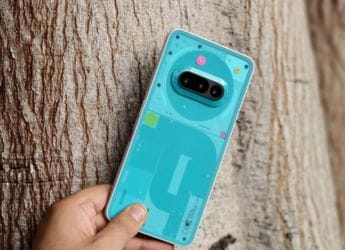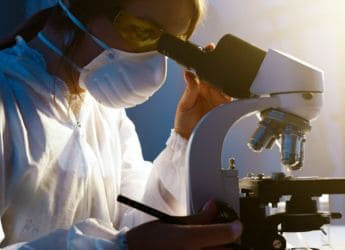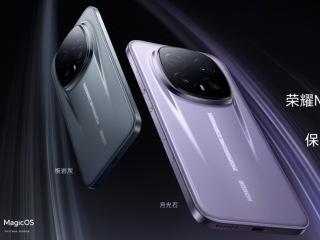- Home
- Science
- Science News
- Google's Hinton Outlines New AI Advance That Requires Less Data
Google's Hinton Outlines New AI Advance That Requires Less Data

Google's Geoffrey Hinton, an artificial intelligence pioneer, on Thursday outlined an advance in the technology that improves the rate at which computers correctly identify images and with reliance on less data.
Hinton, an academic whose previous work on artificial neural networks is considered foundational to the commercialisation of machine learning, detailed the approach, known as capsule networks, in two research papers posted anonymously on academic websites last week.
The approach could mean computers learn to identify a photograph of a face taken from a different angle from those it had in its bank of known images. It could also be applied to speech and video recognition.
"This is a much more robust way of identifying objects," Hinton told attendees at the Go North technology summit hosted by Alphabet Inc's Google, detailing proof of a thesis he had first theorised in 1979.
In the work with Google researchers Sara Sabour and Nicholas Frost, individual capsules - small groups of virtual neurons - were instructed to identify parts of a larger whole and the fixed relationships between them.
The system then confirmed whether those same features were present in images the system had never seen before.
Artificial neural networks mimic the behaviour of neurons to enable computers to operate more like the human brain.
Hinton said early testing of the technique had come up with half the errors of current image recognition techniques.
The bundling of neurons working together to determine both whether a feature is present and its characteristics also means the system should require less data to make its predictions.
"The hope is that maybe we might require less data to learn good classifiers of objects, because they have this ability of generalizing to unseen perspectives or configurations of images," said Hugo Larochelle, who heads Google Brain's research efforts in Montreal.
"That's a big problem right now that machine learning and deep learning needs to address, these methods right now require a lot of data to work," he said.
Hinton likened the advance to work two of his students developed in 2009 on speech recognition using neural networks that improved on existing technology and was incorporated into the Android operating system in 2012.
Still, he cautioned it was early days.
"This is just a theory," he said. "It worked quite impressively on a small dataset" but now needs to be tested on larger datasets, he added.
Peer review of the findings is expected in December.
© Thomson Reuters 2017
Catch the latest from the Consumer Electronics Show on Gadgets 360, at our CES 2026 hub.
Related Stories
- Samsung Galaxy Unpacked 2025
- ChatGPT
- Redmi Note 14 Pro+
- iPhone 16
- Apple Vision Pro
- Oneplus 12
- OnePlus Nord CE 3 Lite 5G
- iPhone 13
- Xiaomi 14 Pro
- Oppo Find N3
- Tecno Spark Go (2023)
- Realme V30
- Best Phones Under 25000
- Samsung Galaxy S24 Series
- Cryptocurrency
- iQoo 12
- Samsung Galaxy S24 Ultra
- Giottus
- Samsung Galaxy Z Flip 5
- Apple 'Scary Fast'
- Housefull 5
- GoPro Hero 12 Black Review
- Invincible Season 2
- JioGlass
- HD Ready TV
- Laptop Under 50000
- Smartwatch Under 10000
- Latest Mobile Phones
- Compare Phones
- Vivo Y500i
- OnePlus Turbo 6V
- OnePlus Turbo 6
- Itel Zeno 20 Max
- OPPO Reno 15 Pro Mini 5G
- Poco M8 Pro 5G
- Motorola Signature
- Vivo Y50e 5G
- Lenovo Yoga Slim 7x (2025)
- Lenovo Yoga Slim 7a
- Realme Pad 3
- OPPO Pad Air 5
- Xiaomi Watch 5
- Huawei Watch 10th Anniversary Edition
- Acerpure Nitro Z Series 100-inch QLED TV
- Samsung 43 Inch LED Ultra HD (4K) Smart TV (UA43UE81AFULXL)
- Asus ROG Ally
- Nintendo Switch Lite
- Haier 1.6 Ton 5 Star Inverter Split AC (HSU19G-MZAID5BN-INV)
- Haier 1.6 Ton 5 Star Inverter Split AC (HSU19G-MZAIM5BN-INV)
















